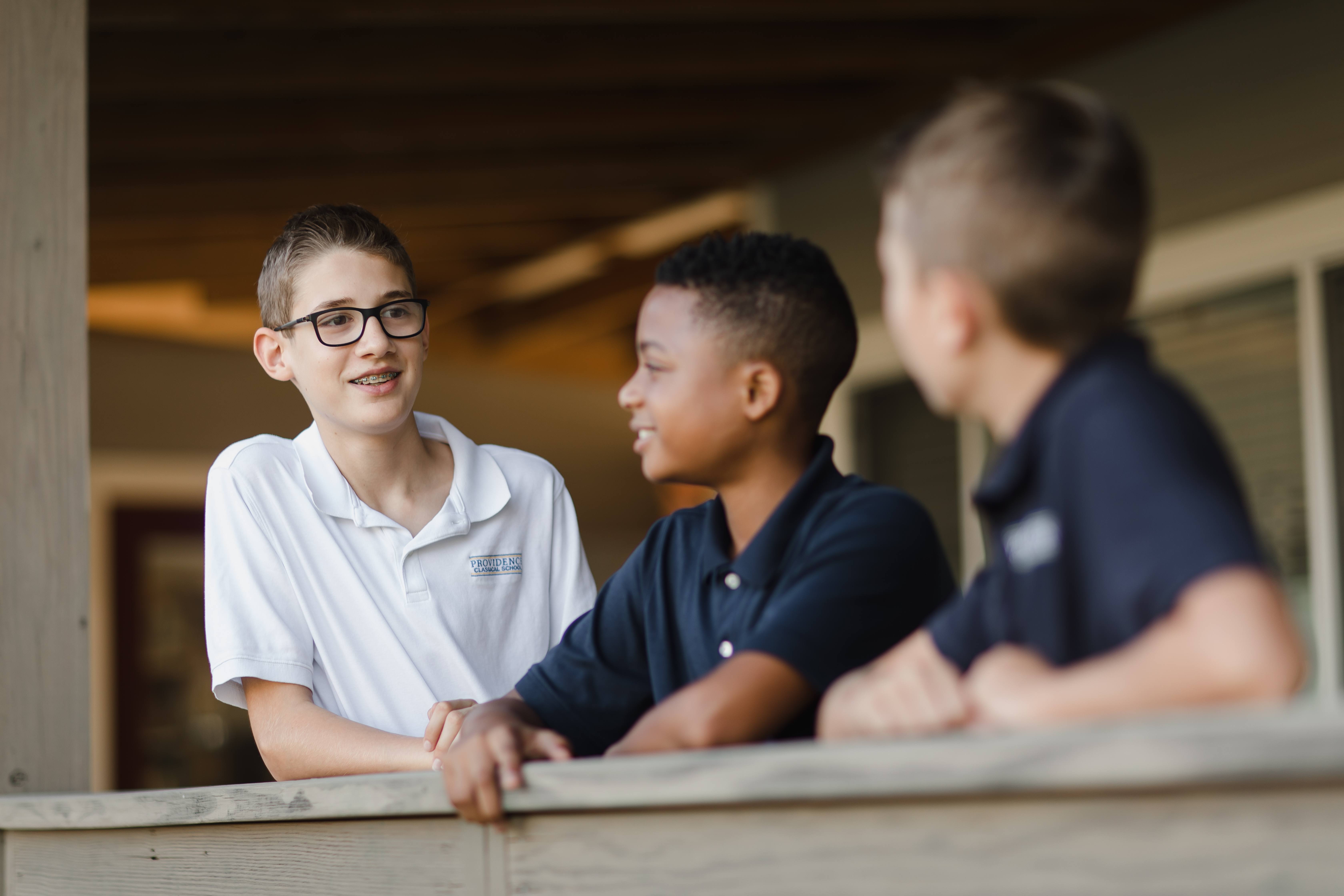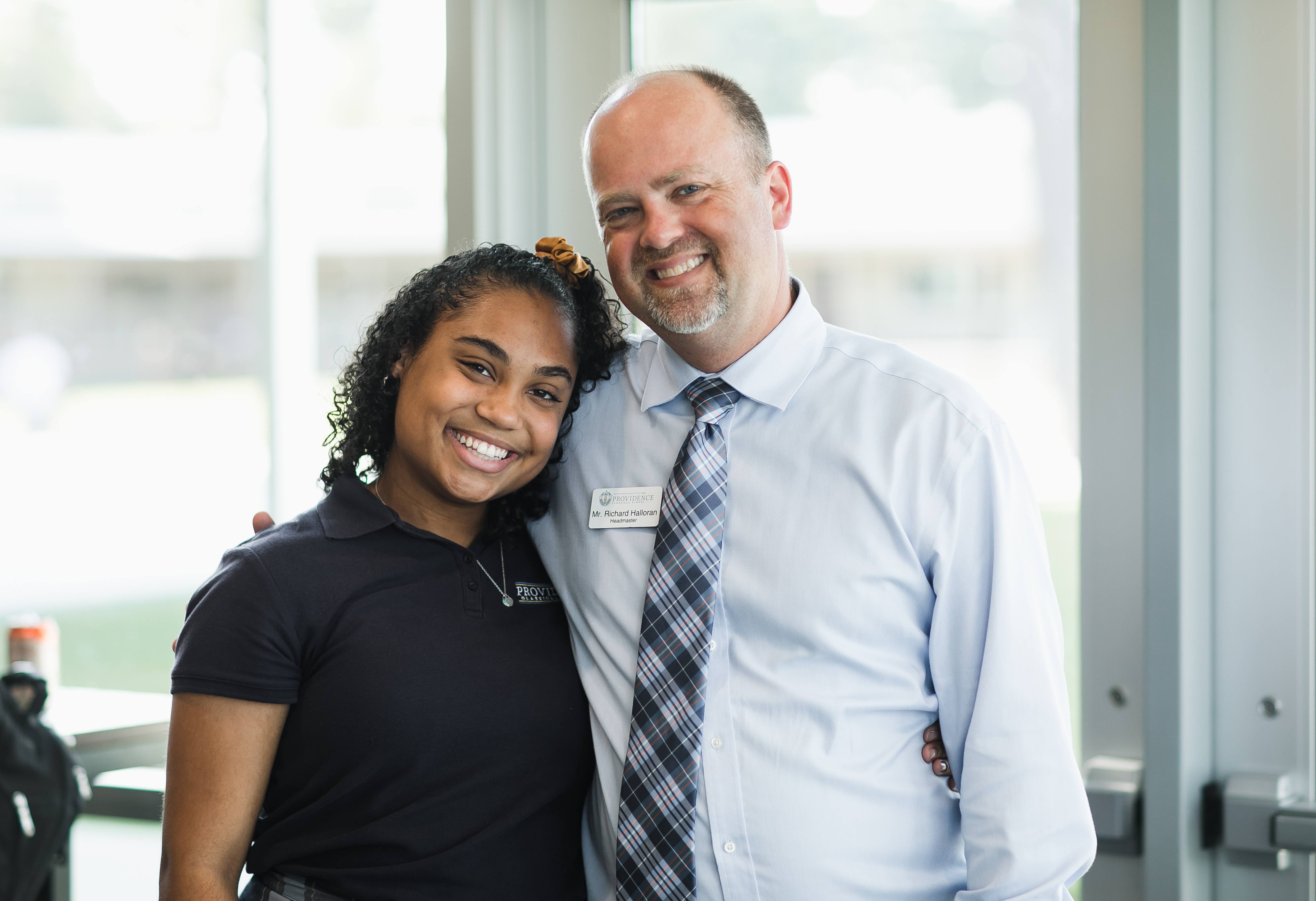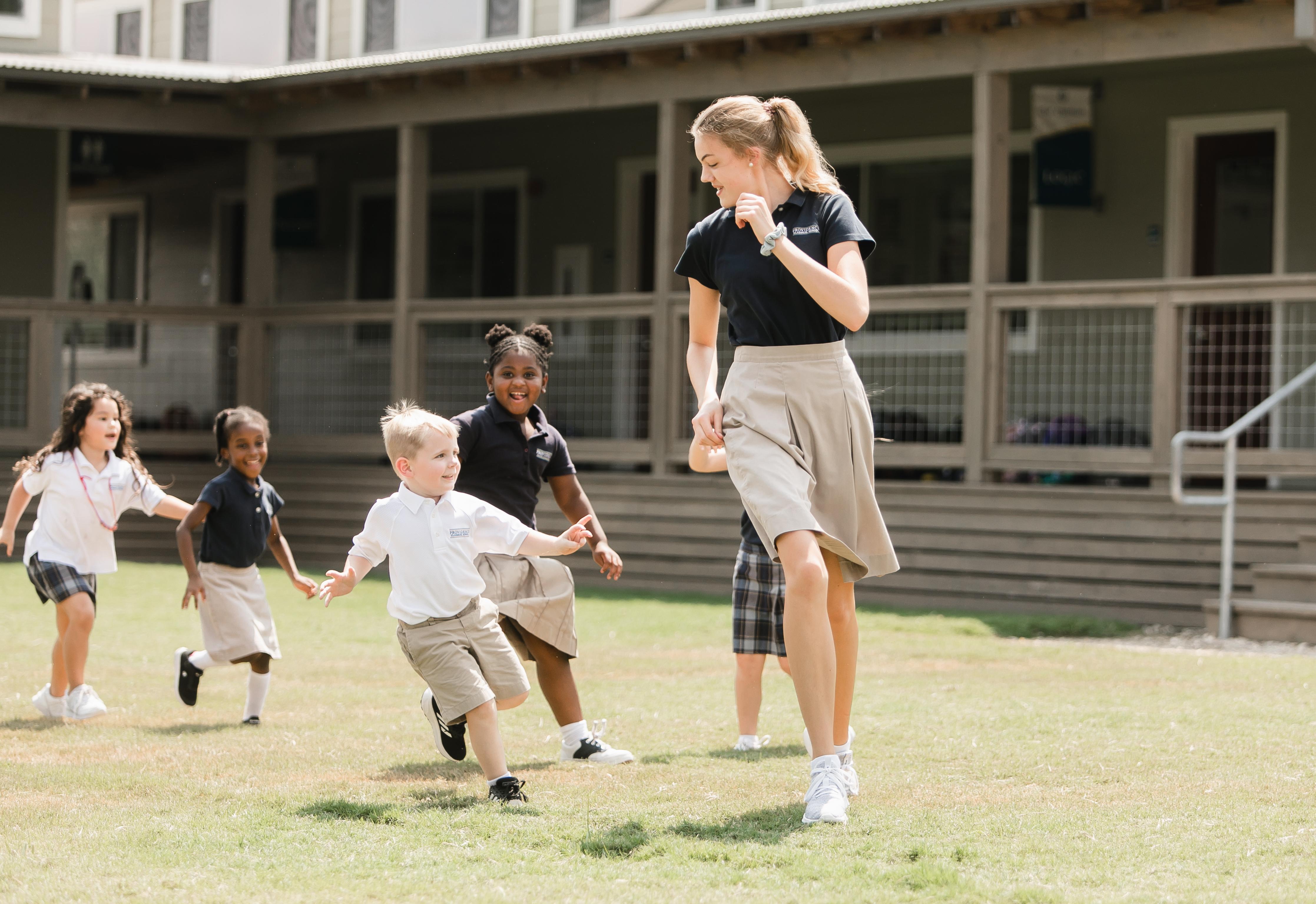Let’s Talk About Race
By Headmaster Richard Halloran
Social media is filled with memes about the nature of the year 2020. For example, at the end of April, I saw one that read, “2020 is a unique leap year. It has 29 days in February, 300 days in March, and 5 years in April.” These memes often cause us to chuckle and laugh, temporarily distracting us from the many challenges faced this year.
While the challenges have been varied and many, three clearly come to light: the COVID-19 pandemic sweeping the world, the resultant economic recession, and the racial tensions throughout our country. As a school community, we have had to adjust to and plan for our response to the pandemic. Additionally, our school and many of our families have been impacted by the economic downturn. These two challenges have caused us to deepen our reliance on the Lord. Yet, it is my belief that our school must also consider how we respond to the challenge of the racial tensions being faced.
Through classical Christian teaching methods, Providence Classical School effectively equips students to dialogue with one another about challenging topics in a winsome manner.
Remember that our school is comprised of a group of people gathered around a specific mission, namely, to be a Christian school using the classical model, to train students to impact their culture for Christ. Our culture is in desperate need of seeing the Christian community respond to this current crisis. We have the amazing opportunity to train our children and students how to represent Christ and winsomely engage in the cultural conversation. We as a school are in a partnership with our parents that aims to train the next generation to be influencers of the culture.
How do we equip our students to engage in the dialogue in a winsome manner?
As I have been processing recent events and the various responses leading to the racial tensions, I have found myself drawn back not only to the Scriptures, but also to our school’s founding documents. When our founders and Board members established the principles that would ensure the implementation of our mission, they included the statement:
We demonstrate our Christianity in the context of relationships, by loving each other with the love of Christ…and by treating each other with the dignity due creatures who are made in the image of God. (Parent-Student Handbook, p. 5)
I love that the statement begins with an affirmation that Christianity is not simply a set of beliefs to which we assent intellectually. Christianity is transformational. True faith is demonstrated in our actions and with our words, and those occur in the context of relationships.
Since all of humanity is made in the image of God, we are called to treat one another with dignity and respect, irrespective of differences in race, ethnicity, or gender.
Headmaster Richard Halloran with his daughter, Bella (Class of 2020).
While experiences are not monolithic, the current tensions have escalated from the reality that African Americans live their lives being treated differently based on the color of their skin. Being married to an African American and having three biracial children has afforded me the opportunity to see this firsthand on a consistent basis. I have seen my children followed around in stores to make sure they don’t steal. Just last week, my wife was questioned for theft when returning an item at the local hardware store where I have never been questioned when returning items. We have had to have conversations with my boys about not running in our neighborhood wearing a hoodie. And yes, I have had a police officer tell me that a neighbor called the police because they thought my son wasn’t from the community.
While our experiences are mild compared to the experiences of many others, they have made a clear impression on me that our society often treats people differently based on race. Loving each other with the love of Christ and treating one another as bearers of the image of God radically impacts how we relate to one another, no matter what the position. It should impact how politicians speak of opponents. It should impact how police officers — and my father was one — treat citizens, even those being questioned or arrested. It should impact how citizens treat one another and those in authority. And it should impact how we respond to this situation.
Providence Classical School is committed to building a community that shows the love of Christ to all students and families, recognizing the dignity of all as creations made in the image of God.
Our school is comprised of people from various races, cultures, and political persuasions.
We have the opportunity to build a community that shows the love of Christ to the culture. In my next blog post, I hope to engage some of the culturally controversial topics and walk through several points in our portrait of an Ideal PCS Graduate to show how we can continue to partner with parents to train our students to engage and redeem our culture in the current climate.
In the meantime, let me challenge us to take a posture of listening. I’m reminded of James’ exhortation to “be quick to listen, slow to speak, and slow to get angry.” (James 1:19) A former pastor of mine used to say, “There’s a reason why God created us with two ears and only one mouth.”
In the current climate, emotions are running high, and I often see people who are quick to speak and slow to listen. For those outside of African American culture, take the opportunity to listen to the experiences and concerns that many African Americans are raising. It is hard to consider the topics of racial injustice without first hearing the experiences of minorities. If we and our children and students are going to winsomely engage the culture, we need to gain a better understanding of the experiences and thoughts of others in order to effectively reflect the love of Christ to them.
We will not effectively reflect the love of Christ without having conversations with those who are different than us.
One of my favorite passages in the New Testament is found in Luke’s gospel as Jesus tells the parable of the good Samaritan. When Jesus said the second greatest commandment is to love your neighbor as yourself (Luke 10:27), the expert in the law asked Jesus, “And who is my neighbor?” Jesus then told the story of a Samaritan (one different than a Jew and considered an opponent of Judaism) who had no way of discerning the distinct ethnicity of the unconscious and stripped man, yet was compassionate and acted to care for the man. Having told the parable, he flipped the question on the expert of the law, asking, “Which of these proved to be a good neighbor to the man who fell into the robbers’ hands?” Instead of looking out to see who qualified as a neighbor, Jesus placed the responsibility on every individual to be a neighbor to one in need, without a need to meet qualifications. I recognize that these matters are complex and that I do not have all of the answers, so I find myself asking at the end of the day:
Have I obeyed the greatest two commandments?
Parents, in this culture, our children are hearing messages from a host of sources (e.g., friends, media, social media, etc.). Let me encourage us, in addition to engaging in conversations with others, to not let this opportunity escape us. Let’s engage in conversations with our children to find out what messages they are receiving and to guide them to respond graciously from a biblical worldview.
On one occasion an expert in the law stood up to test Jesus. “Teacher,” he asked, “what must I do to inherit eternal life?”
“What is written in the Law?” he replied. “How do you read it?”
He answered, “‘Love the Lord your God with all your heart and with all your soul and with all your strength and with all your mind’; and, ‘Love your neighbor as yourself.’”
“You have answered correctly,” Jesus replied. “Do this and you will live.”
Luke 10:25-28
Read more about the values inherent in classical Christian education on the Providence Classical School blog.











